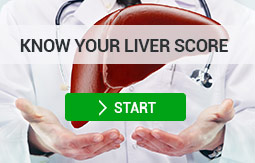What’s in this article
- What is Hepatitis C?
- Signs and symptoms
- How do you contract hepatitis C?
- Diagnosis
- Treatment
What is hepatitis C?
Hepatitis C is a disease that is caused by a virus that infects the liver and if left untreated it can lead to liver cirrhosis, liver cancer and even liver failure. Many people who have the disease may not even know they do until there has been liver damage. Hepatitis C can be acute (short time) or chronic (lasting a longer time) and only 15% or less of people who contract hepatitis C will defeat the virus with their immune system. According to the Centers for Disease Control & Prevention, in 2009, there were around 16,000 reported cases of acute hepatitis C in the United States. There are around 3.2 million people in the United States who are living with chronic hepatitis C.
Signs and symptoms
There are not always obvious signs and symptoms of hepatitis C so if you think you may have come into contact with or contracted the disease then it is important to get checked.
In early stages, symptoms may include:
- Sickness
- Fever
- Tiredness
- Dark urine and pale stool
- Jaundice (rarely)
- Fatigue
- Loss of appetite
- Vomiting
- Nausea
- Flu-like symptoms
As hepatitis C progresses, the below symptoms can occur:
- Joint or muscle discomfort
- Depression or anxiety
- Neuropathy
- Dry mouth
- Kidney problems
- Increased risk of diabetes
- Weight loss for unknown reasons
- Itching
- Bleeding and bruising easily
- Spider veins
How do you contract hepatitis C?
Hepatitis C (HCV) is transmitted through contact with contaminated blood, the most common way for this to happen is through needles and syringes shared by drug users and piercings and tattoos performed under poor hygiene conditions. According to the World Health Organization, each year, around 3-4 million people develop HCV infection.
Because the disease is only spread through exposure to an infected person’s blood, it is quite hard to catch but not impossible. You cannot catch hepatitis C through:
- Coughing
- Sneezing
- Hugging
- Kissing
- Breastfeeding (unless nipples are cracked or bleeding)
- Sharing utensils or glasses
- Sharing food and water
As hepatitis C can be spread through infected blood the following precautions should be taken:
- Do not share razors, toothbrushes, nail clippers or anything else that may have traces of blood on it
- Cover open wounds or sores with bandages or band-aids
- Dispose of tampons, sanitary napkins, tissues, used bandages, and anything else that might have your blood on it in a safe way
- Do not share needles with anyone else if you are an intravenous drug user, try to get yourself into rehab or a help group to quit
- Make sure any piercing place, tattoo studio or nail salon that you plan on going to practices the proper precautions and hygiene rules
- Do not donate blood, organs, tissue, or semen
- Always wear a condom when having sexual intercourse outside of a monogamous relationship
- If you have HCV make sure you tell anyone that you think may be at risk of catching it from you
- Get tested if you received a blood transfusion before 1992
Diagnosis
Hepatitis C is most often diagnosed by having a blood or tissue sample taken. The blood will be tested for antibodies relating to the virus, this can be detected two or three months after the time of suspected contraction. Ensure that you consult your doctor if you suspect you have hepatitis.
Treatment
A common form of treatment for hepatitis C is protease inhibitors which are antiviral drugs that slow the progression of the disease. Another form of treatment is a drug called Harvoni, it is a combination of two pills taken daily and can cure the disease altogether. According to the National Institute of Health, depending on the type of hepatitis C, about 90 percent of the people who are treated with protease inhibitors will eventually show an absence of the disease in their blood. They will, therefore, be cured of hepatitis C. In July 2017, the U.S. Food and Drug Administration approved a new pill that can cure the disease, however, will not repair the damage that the disease has done to the liver.
Find out more about the basics of liver health with Dr. Tarek Hassanein, M.D.
References
Liverdirectory.com
WebMD

 (442) 244-5115
(442) 244-5115















